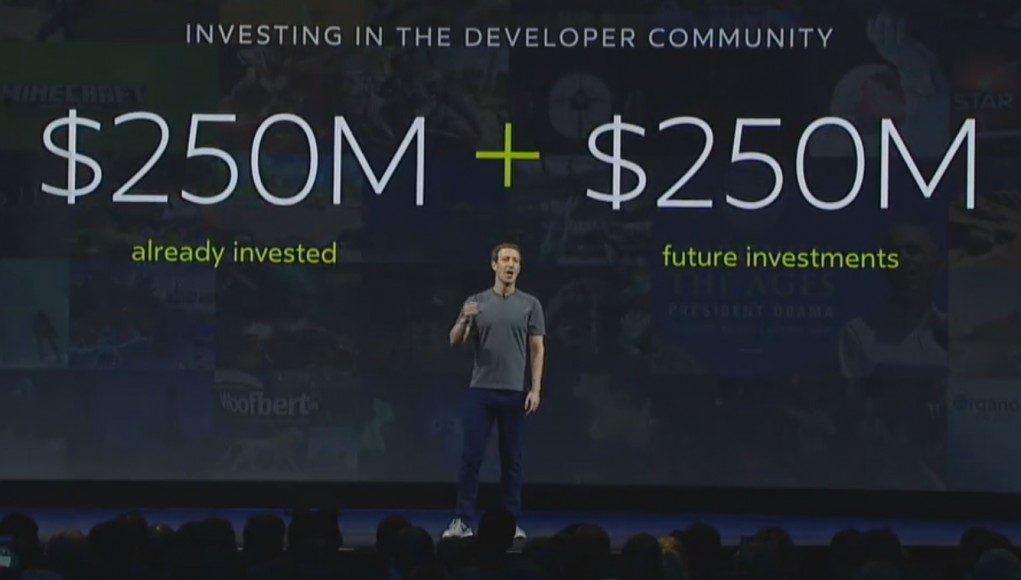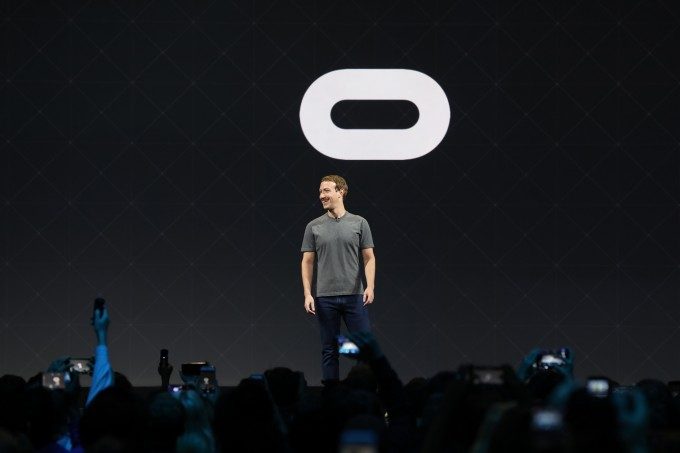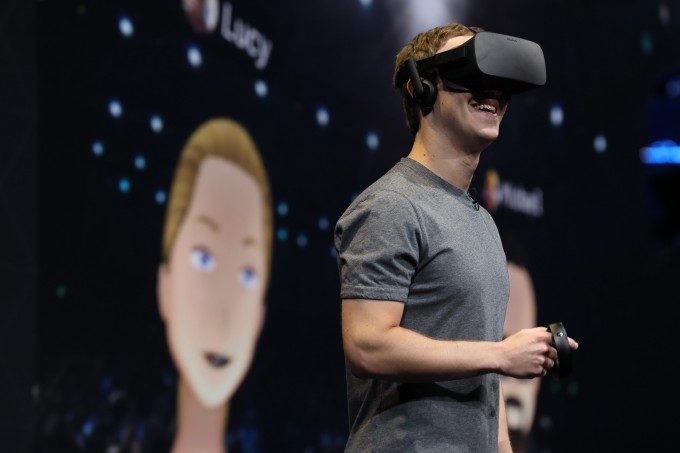At Oculus Connect’s opening keynote today, Facebook founder Mark Zuckerberg took to the stage to drive home the company’s commitment to the virtual reality space. How much commitment? Some $500M worth.
Amid a flurry of announcements at Oculus Connect 3’s opening keynote, the central message of the event is that content is crucial and, now that the VR industry is moving beyond the initial challenges of delivering hardware that works, it’s the presence of truly groundbreaking and compelling VR experiences that will make or break immersive technology as the next platform.
To drive this message home Mark Zuckerberg, founder of Facebook, who acquired Oculus in 2014 for $2Bn, took to the stage to take part in a confident and altogether impressive demonstration of the company’s latest advancements in social VR. After rejoining the real world, Zuckerberg went on to highlight how much money Oculus and Facebook are pumping into the development community to help ensure becomes a lasting phenomenon. “We’re really committed in helping this community build all kinds of [VR] experiences,” said Zuckerberg going on to state that, “we have already invested more then $250M dollars into this community, to fund the development all kinds of content.” Zuckerberg then went on to pledge to developer that Oculus and Facebook will pump a further $250M into future content projects.
Oculus have repeatedly stated that sitting back and waiting for high-quality virtual reality games and applications to appear isn’t good enough. Their strategy since well before the consumer Rift launch has been to actively stimulate and support developers keen to help build VR content in a small, risky marketplace – helping them mitigate that risk. This has led to some controversy over the resulting platform exclusives which have emerged, but it’s an approach that has arguably led to some compelling VR software.
The approach isn’t unique to Oculus of course. Although Valve have admitted to funding development for VR projects, they are characteristically coy about precisely how, or indeed how much. SteamVR partners HTC – manufacturers of the Vive – recently launched initiatives to inject $100M into help grow the VR industry with its Vive X program.









